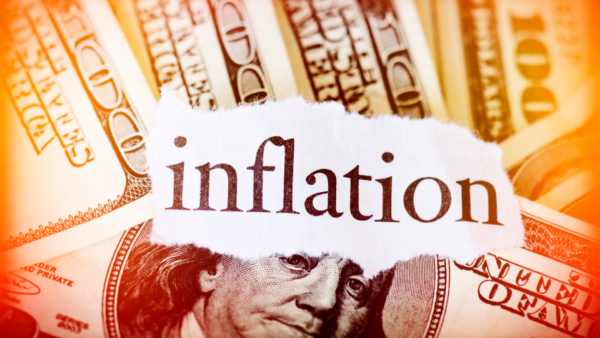Inflation is an economic term that describes an increase in the prices of goods and services over time. It measures an annual percentage increase =. As inflation rises, every dollar you own buys a smaller percentage of a good or service.
Causes of Inflation
Inflation can occur due to various factors:
- Demand-Pull Inflation: Demand-pull inflation happens when demand for goods and services exceeds supply, which can occur during economic expansion. For example, if more people start buying cars than are available, the price of cars will likely increase.
- Cost-Push Inflation: Cost-Push Inflation occurs when the cost of production inputs increases. For example, if the price of oil rises, this increases the cost of producing goods which are transported by vehicles, leading to higher prices for these goods.
Examples of Inflation
Here are some practical examples to illustrate how inflation works in everyday life:
- Grocery Shopping: Over the past year, if the price of a loaf of bread increased from Rs. 40 to Rs. 50, that’s a clear instance of inflation. You’re paying more for the same product.
- Housing Costs: If rents were averaging Rs.10,000 per month and increasing to Rs. 11,050 the next year, tenants would experience inflation, as they have to spend more to maintain the same standard of living.
- Gasoline Prices: If you filled your car’s tank for Rs. 80 but now it costs Rs. 100 to fill the same tank under similar conditions, that’s inflation affecting your expenses.
- Utility Bills: An increase in electricity or water rates due to rising costs in energy production or supply shortages also reflects inflation.
Effects of Inflation
- Purchasing Power: Inflation erodes the purchasing power of money, meaning your dollars buy less over time.
- Savings: Inflation can erode the value of savings, especially if the interest rates on savings accounts are lower than the rate of inflation.
- Investments: Inflation can influence the returns on investments. While some investments like real estate and stocks may keep up with inflation, others like fixed-income securities might not.
- Income: People on fixed incomes, like retirees with fixed pensions, can find it harder to maintain their standard of living as prices rise.
How Inflation is Measured
Inflation is most commonly measured by the Consumer Price Index (CPI), which tracks the average price change over time of a basket of goods and services that a typical household might purchase. Another measure is the Producer Price Index (PPI), which tracks changes in the selling prices received by domestic producers for their output.
Managing Inflation
Central banks, like the Federal Reserve in the United States and The Reserve Bank of India in India, manage inflation through monetary policy. They adjust interest rates to either curb inflation if it’s too high (by making borrowing more expensive) or stimulate spending and investment if it’s too low (by making borrowing cheaper).
Understanding inflation is crucial because it affects everything from personal budgeting to national economic policy. It influences financial decisions, investment portfolios, and can have significant implications for economic health and stability.


canohu这个站我关注很久了,一直没敢下手,有没有大神玩过的,给点建议呗?听说优惠挺多的,心动啊!想了解的可以看看canohu。
Just logged into pgbetlogin and the whole process was super smooth, no dramas at all. That’s always a good start, right? Hopefully my luck is just as good! If you’re after an easy login, try pgbetlogin.
Spinning the reels at win55club tonight! Games seem lively and the payouts are promising, fingers crossed I get lucky! Feeling good vibes, so far so good. See what all the fuss is about over at win55club.